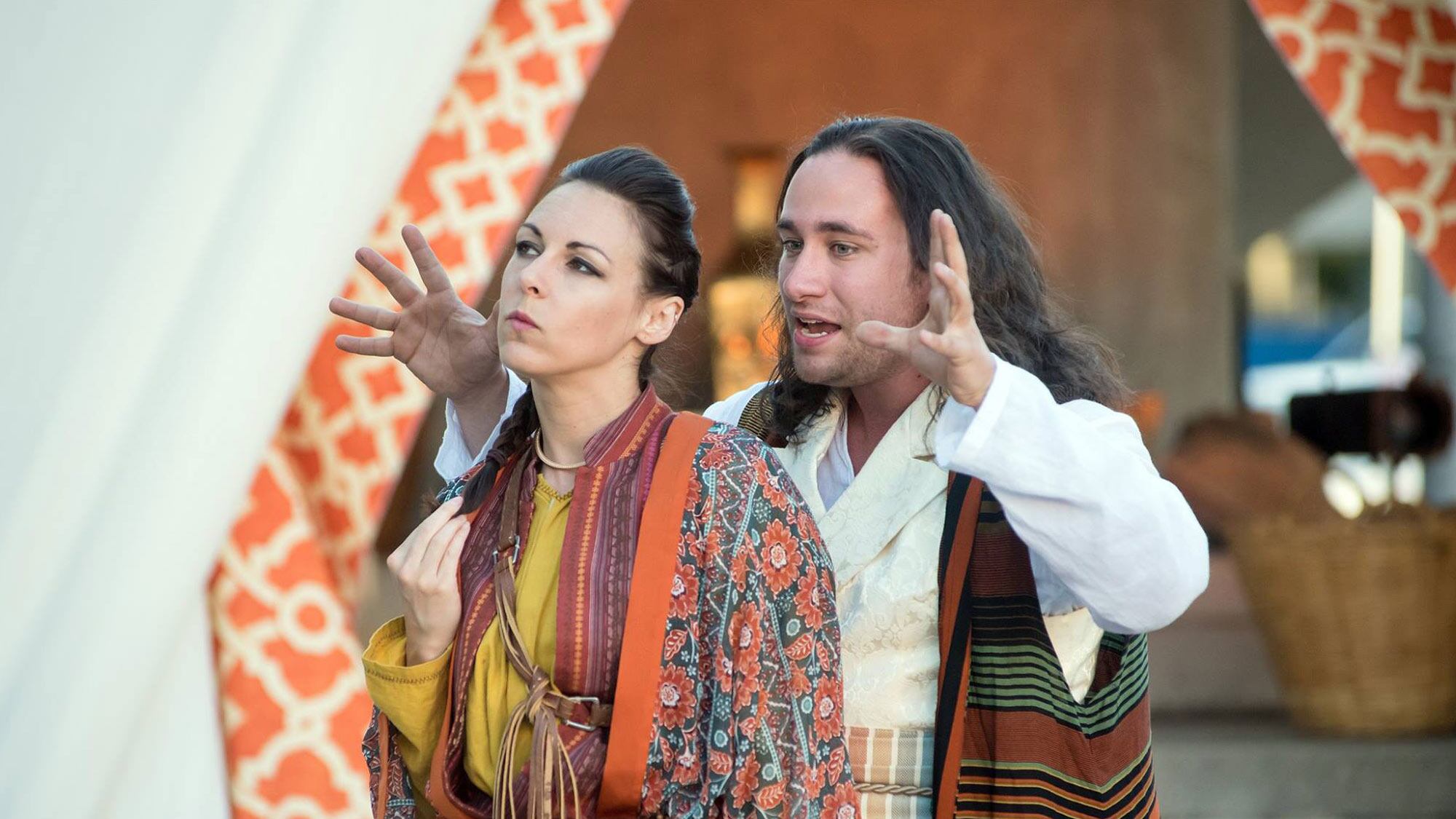Shakespeare was kind of a rip-off—the Bard lifted many of his most famous plots other sources. So for its production of Romeo & Juliet, theater company Bag&Baggage has combined Shakespeare's script with Layla & Majnun, an epic poem from 12th century-Persia that's theorized to be the source of Shakespeare's plot.
Artistic director Scott Palmer spliced together dialogue from both scripts, alternating between Elizabethan English and translated Persian. Capulets become Romans, Montagues become Persians. The opening scene sees the titular Majnun (Nicholas Granato) lay out a rug and pray to Allah. Later, he discovers spirits at a spring in the middle of the desert, and the occasional musical clip is steeped in Eastern chords and melodies. Soldiers fight with small knives and scimitars instead of European blades.
The Bard's plays are famously open-ended, but it's still interesting to see a production with such a change in cultural backdrop. Making a war between Christianity and Islam the central conflict in the Western world's most famous love story has plenty of political implications. The opportunity for effective social commentary is there, especially in a political climate marked with Islamophobia.
Palmer has staged his vision outdoors on the plaza of Hillsboro's Civic Center. A giant canopy, draped over one of the center's balconies, makes up a majority of the set, while the costuming recalls the Crusades—characters wear flowing robes and red crosses cover the surrounding lampposts.
It's a visual treat, but the mashed-together script is a bit of a mixed bag. Several of the events from Romeo & Juliet have been either changed or shortened in ways that mute the play's thematic resonance. The circumstances surrounding the titular couple's demise have been significantly altered, presumably to be more in keeping with the Persian version of the story. Romeo is not tricked into believing Juliet has died, for instance. Instead, his knowledge is equal to that of the audience, and the tragic irony that made the Bard's play so powerful is all but gone.
Little of that fault falls upon the players. Granato gives a highly physical performance—each desperate line comes with an equally despondent expression that turns Majnun's love into a maniacal obsession. As Juliet/Layla, Arianne Jacques brings humor to the role's usual angst. Keeping the audience consistently entertained is a job that usually falls to Mercutio and Benvolio (here they're Nawfal and Benvolio), and actors Colin Wood and Cassie Greer rise to the task. Their work keeps this slightly haphazard script from losing its audience completely.
But despite the seemingly radical premise, there's little here that feels resonant. Usually the largest challenge surrounding Romeo & Juliet is making the couple's immaturity universally relatable. Palmer instead focused his energy on combining two stories from different eras. He does so convincingly, but there seems to be less attention on the play's emotional impact. Layla & Majnun is more an exercise in adaptation.
SEE IT: Romeo & Juliet/Layla & Majnun is at Hillsboro Civic Center, 150 E Main St., bagnbaggage.org. 7:30 p.m., Thursday-Saturday through August 5. $20.

